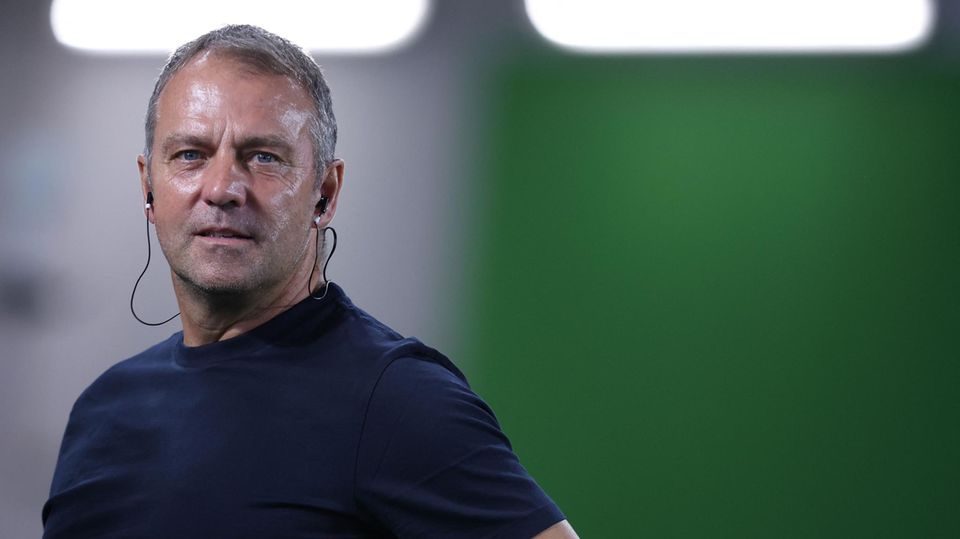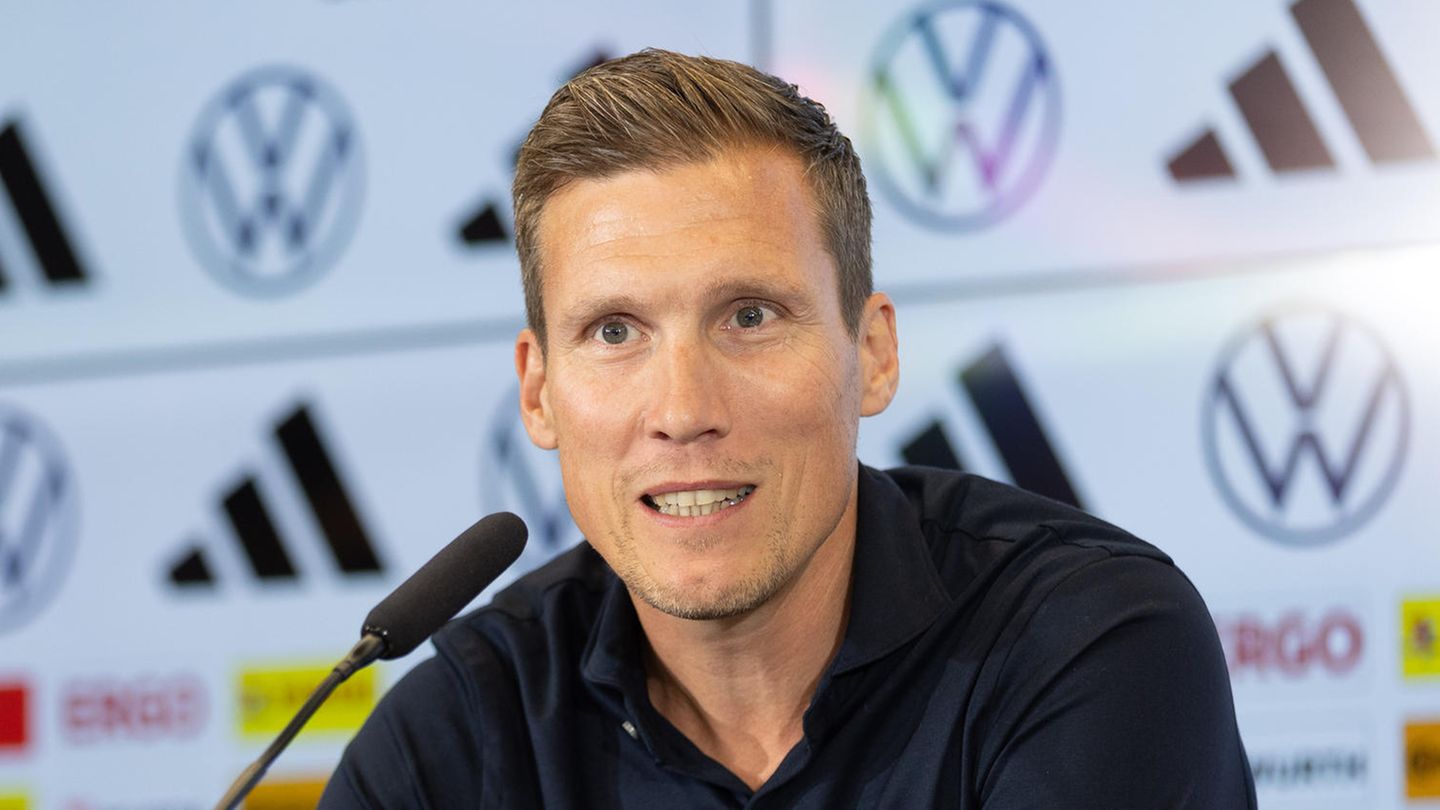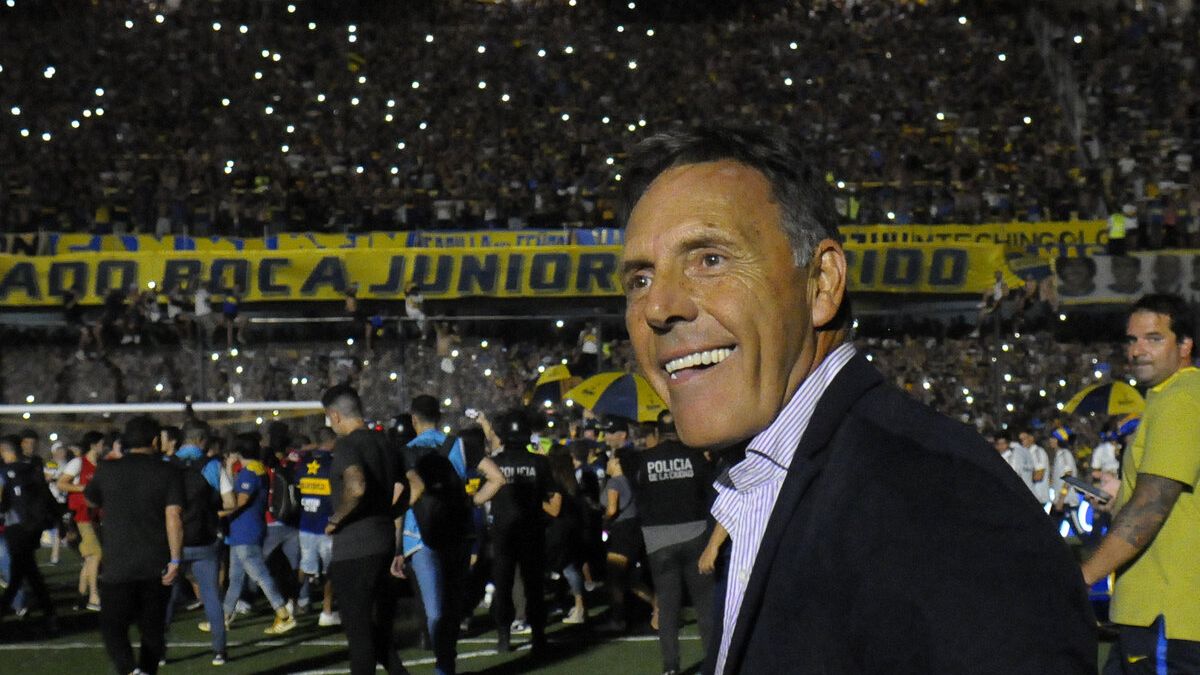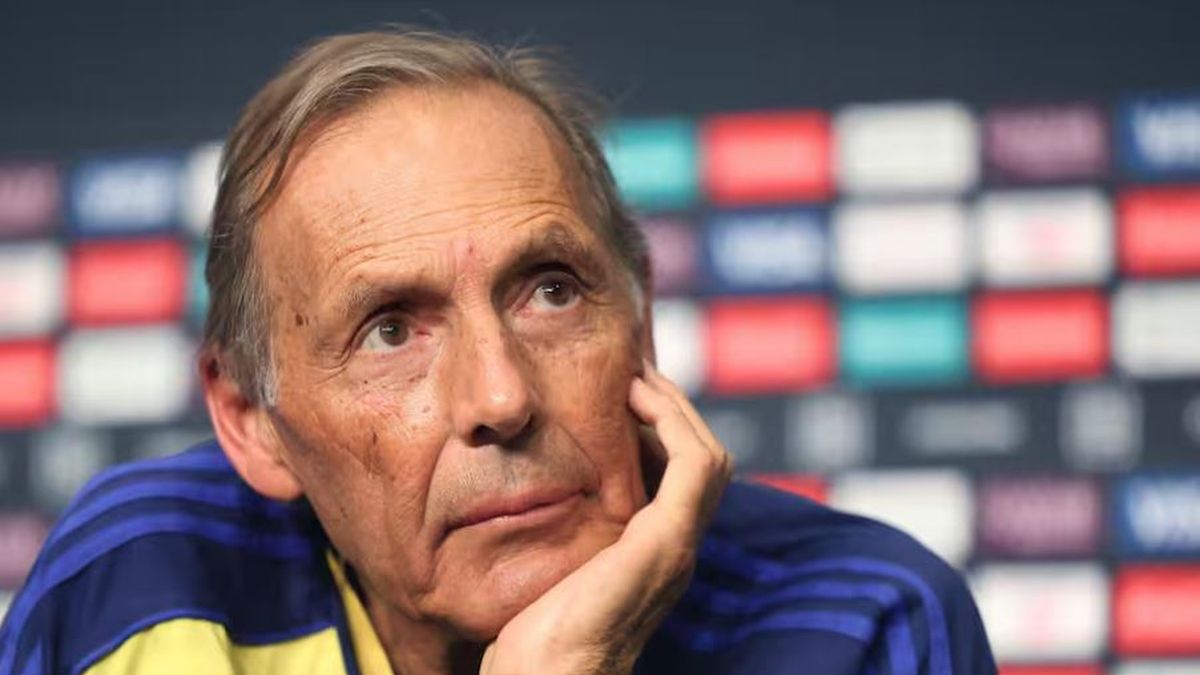At a long press conference, DFB director Hannes Wolf passionately promoted the youth reform. He left no doubt about how necessary the reform was – and that there was no dispute with Hans-Joachim Watzke.
Hannes Wolf moderated DFB Vice President Hans-Joachim Watzke’s harsh criticism of the youth reform at the German Football Association with a smile. “I don’t see it that narrowly. It wasn’t an attack on the reform, but rather a huge gain because it opened up the debate further,” said the new director for young talent, training and development on Wednesday in Frankfurt am Main.
In any case, verbal interference will not stop Wolf from implementing new forms of play in children’s and youth football, which, according to him, also meet with broad approval among clubs and youth academies.
“It is essential for the children’s development that they have the ball more often. Development will increase significantly if we train more in small formats such as three against three or four against four. What we get from this is much, much more worth more than a table,” affirmed Wolf.
Differences with Watzke have been resolved
DFL boss Watzke described the planned abolition of tables from the U6 to the U11 as “unbelievable” and “incomprehensible” and announced a reform of the reform. Wolf now reported that the differences had been resolved. “We spoke on the phone twice afterwards. Everything is fine between us,” said the 42-year-old and thanked Watzke afterwards: “This is the first time in Germany that we are having a public debate about youth football. We are really happy about that.”
In his passionate plea for youth reform, Wolf once again referred to the urgency of the project. “The reference is the professional sector. The talent pool is currently too small. That’s why we have to do it right the whole way there so that the young players don’t hit the wall,” said the coach of the German U20 team.
Fewer top players than other nations
U21 national coach Antonio di Salvo also sees smaller training formats on several fields as “no alternative”. “The kids have to look for solutions one-on-one and learn early on how to act under pressure,” he said.
After the failures of the DFB selection at the 2018 and 2022 World Cups as well as the 2021 European Championships, the German U21 team recently also disappointed badly with their elimination in the preliminary round at the European Championships. “We already have good players, but there are perhaps fewer players than in other nations,” Wolf stated and formulated his goal: “We want to have great players in every generation.”
Hannes Wolf warns
In order to achieve this and be able to be among the world’s best again in the future, the propagated training methods must be implemented across the board. “A striker who doesn’t have this form for a year or two can no longer be top,” warned Wolf.

The response to the new training philosophy so far makes him confident that he will soon achieve initial success. “It will happen much faster than you think. Because everyone is behind it. It’s a collaboration with the big clubs,” said Wolf. His wish for the near future: “We would like to say in three years: where do all the good players come from?”
Source: Stern
I am Pierce Boyd, a driven and ambitious professional working in the news industry. I have been writing for 24 Hours Worlds for over five years, specializing in sports section coverage. During my tenure at the publication, I have built an impressive portfolio of articles that has earned me a reputation as an experienced journalist and content creator.




